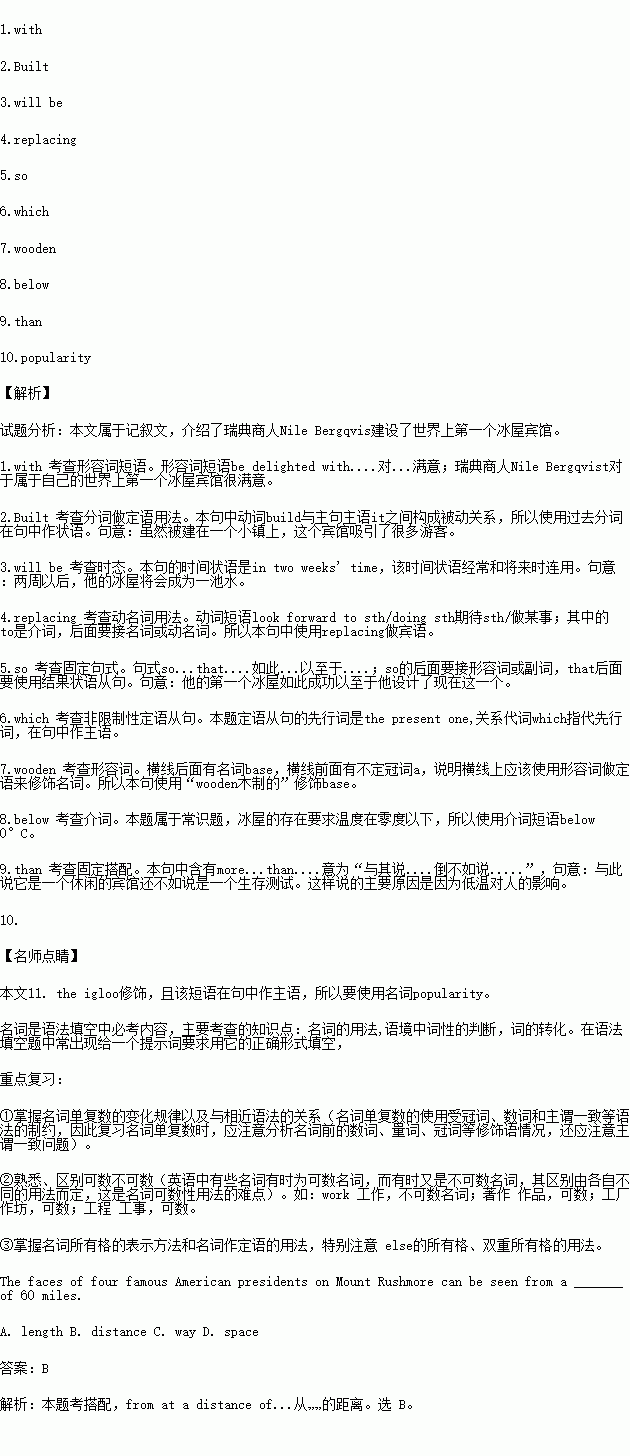题目内容
阅读下面材料,在空白处填入适当的内容(1个单词)或括号内单词的正确形式。
Swedish businessman Nile Bergqvist is delighted 1.____ his new hotel, the world’s first igloo(冰屋) hotel.
2.______ (build) in an small town, it has been attracting lots of visitors but soon the fun will be over. In two weeks’ time Bergqvist’s ice creation 3.______ (be) nothing more than a pool of water. “We don’t see it as a big problem, ”he says. “We just look forward to 4._____(replace)it. ”
Bergqvist built his first igloo in 1991 for an art exhibition. It was 5._____ successful that he designed the present one, 6.______ measures roughly 200 square meters. Six workmen spent more than eight weeks piling 1,000 tons of snow onto a7._____(wood) base;when the snow froze, the base was removed.
After their stay, all visitors receive a survival certificate recording their success. With no windows, nowhere to hang clothes and temperatures 8.___ 0°C, it may seem more like a survival test9._____ a relaxing hotel break. “It’s great fun,” Bergqvist explains, “As well as a good start in survival training.’’
The 10.______ (popular)of the igloo is beyond doubt:it is now attracting tourists from all over the world. At least 800 people have stayed at the igloo this season even though there are only 10 rooms.
 天天向上一本好卷系列答案
天天向上一本好卷系列答案 小学生10分钟应用题系列答案
小学生10分钟应用题系列答案

